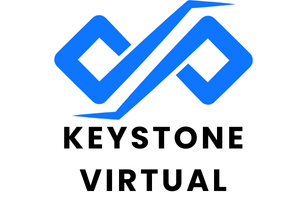Integrating blockchain technology into UK healthcare can revolutionise patient care and data security. This advanced technology offers secure, transparent solutions that address long-standing issues like data breaches and interoperability. Understanding the specific strategies for successful implementation is essential for healthcare providers. By focusing on collaboration, regulation compliance, and training, stakeholders can harness blockchain's potential to enhance operational efficiency and patient trust. Discover effective approaches that empower healthcare systems to embrace the future while ensuring safety and reliability.
Overview of Blockchain Technology in Healthcare
Blockchain technology is revolutionising the healthcare industry by providing a secure, decentralised way to store and share data. This technology ensures that patient records are tamper-proof and accessible only to authorised personnel, enhancing both privacy and trust. In the UK, blockchain technology is gradually being integrated into healthcare systems, albeit at a cautious pace due to regulatory and infrastructural challenges.
Topic to read : Top Strategies for Effective Data Encryption in UK Financial Services
The integration of blockchain technology in UK healthcare aims to streamline processes and improve data management. Currently, several pilot projects are underway to explore its potential benefits, such as reducing administrative costs and improving patient outcomes. These projects highlight the growing interest and investment in blockchain as a tool for innovation in the healthcare sector.
Key benefits of implementing blockchain in healthcare include enhanced data security, improved interoperability between systems, and increased transparency in patient care. By enabling secure sharing of medical records across different healthcare providers, blockchain technology can reduce errors, prevent data breaches, and facilitate healthcare integration. This technological advancement holds the promise of transforming the way healthcare is delivered, ensuring that patient information is both secure and easily accessible to those who need it.
In parallel : What Role Does AI Play in UK Retail Inventory Forecasting?
Successful Integration Strategies
Implementing blockchain technology in healthcare systems requires thoughtful integration strategies. A robust framework can streamline this process, ensuring efficient and effective adoption.
Framework for Implementation
Developing a comprehensive blockchain implementation framework is crucial. This involves setting clear objectives, assessing existing infrastructure, and identifying potential barriers. A well-defined roadmap outlines the steps necessary for successful integration, addressing both technical and regulatory challenges. This strategic approach helps healthcare systems transition smoothly to blockchain solutions.
Collaborating with Stakeholders
The importance of collaboration with stakeholders cannot be overstated. Engaging healthcare professionals, IT experts, and regulatory bodies ensures a holistic approach to blockchain implementation. Stakeholder collaboration fosters trust and facilitates the alignment of goals, making it easier to address concerns and leverage collective expertise. This multi-stakeholder involvement is essential for overcoming resistance and achieving widespread adoption.
Leveraging Existing Technologies
Utilising existing IT infrastructure can significantly ease the transition to blockchain. By integrating blockchain with current systems, healthcare providers can maximise their investments and minimise disruption. Best practices include assessing compatibility with existing technologies and ensuring scalable solutions. This approach not only reduces costs but also accelerates the adoption process, making blockchain a feasible option for healthcare systems.
Case Studies from UK Healthcare
Exploring case studies reveals the practical applications of blockchain technology in UK healthcare. These examples showcase how blockchain enhances healthcare outcomes by ensuring secure data management and streamlined processes.
Analysis of Successful Blockchain Projects
Several UK healthcare examples highlight successful blockchain projects. For instance, a pilot project in London hospitals utilised blockchain to manage patient consent for data sharing. This initiative demonstrated improved data accuracy and patient trust, as the immutable nature of blockchain ensured that consent records were tamper-proof.
Lessons Learned from Case Studies
From these case studies, we learn the importance of stakeholder engagement and clear communication. Engaging healthcare professionals early in the process helps address concerns and facilitates smoother integration. Additionally, the adaptability of blockchain solutions to existing IT systems is crucial for successful implementation.
Impact Assessment on Healthcare Outcomes
The impact of blockchain on healthcare outcomes is significant. These projects have shown a reduction in administrative errors and enhanced patient privacy. By providing a secure platform for data exchange, blockchain fosters increased interoperability between healthcare providers, ultimately leading to better patient care. The positive outcomes from these UK healthcare examples underscore the transformative potential of blockchain technology in the healthcare sector.
Challenges and Solutions
Implementing blockchain technology in healthcare comes with its own set of challenges and barriers to adoption. Understanding and addressing these obstacles is crucial for successful integration.
Regulatory and Compliance Issues
Regulatory and compliance issues are among the primary barriers to adoption of blockchain in healthcare. In the UK, stringent data protection laws require healthcare systems to navigate complex regulations. Solutions involve collaborating with regulatory bodies to ensure compliance and developing frameworks that align with existing laws. By doing so, healthcare organisations can mitigate risks and facilitate smoother integration.
Technical Barriers
Technical barriers also pose significant challenges. Blockchain integration requires robust IT infrastructure and expertise. Solutions include investing in training for IT professionals and upgrading existing systems to support blockchain technology. Ensuring interoperability with current systems is essential for overcoming these barriers. Healthcare providers can leverage existing technologies to ease the transition and maximise the benefits of blockchain.
Change Management
Change management is critical in addressing barriers to adoption. Successful strategies involve engaging stakeholders, such as healthcare professionals and IT experts, early in the process. Clear communication and training programmes can help manage resistance and foster a culture of innovation. By addressing these challenges proactively, healthcare organisations can pave the way for successful blockchain integration.
Future Outlook of Blockchain in UK Healthcare
The future trends in blockchain technology suggest a promising trajectory for healthcare innovation. As the digital landscape evolves, blockchain's potential to revolutionise healthcare systems becomes increasingly evident. Emerging trends indicate a shift towards more personalised and patient-centric care, facilitated by secure and transparent data sharing.
Predictions for blockchain's role in future healthcare innovations are optimistic. Blockchain could enable seamless interoperability among healthcare providers, enhancing patient outcomes by ensuring accurate and timely data access. The technology's ability to provide an immutable record of patient interactions will likely reduce errors and improve trust in medical data management.
To stay ahead in the blockchain space, stakeholders should consider several recommendations. Firstly, investing in continuous education and training for healthcare professionals and IT staff is crucial. This ensures that all parties are well-versed in blockchain's capabilities and limitations. Secondly, fostering collaborations with tech companies can accelerate the adoption of blockchain solutions. By leveraging external expertise, healthcare organisations can better navigate the complexities of blockchain integration.
In conclusion, the future of blockchain in UK healthcare looks bright, with significant potential for healthcare innovation. By embracing these trends and preparing strategically, stakeholders can harness blockchain's full potential to transform patient care.











